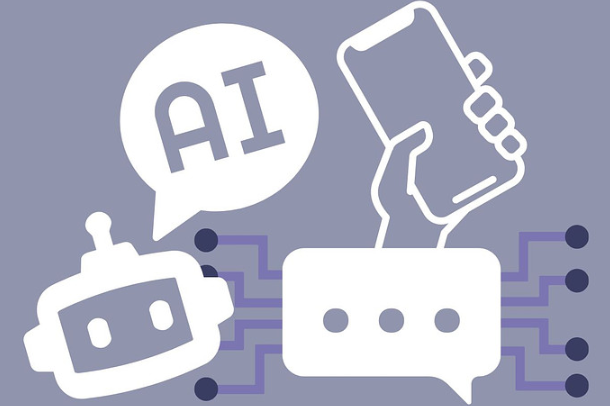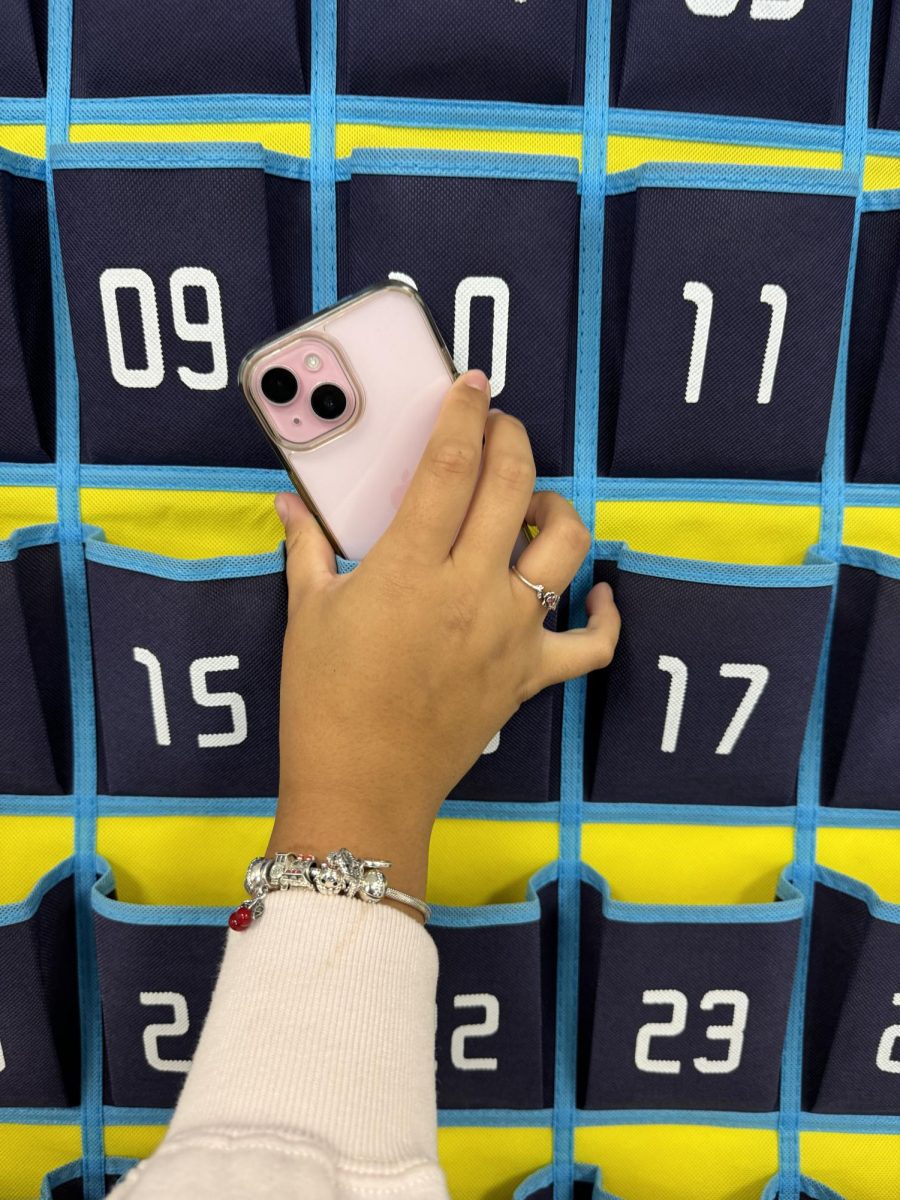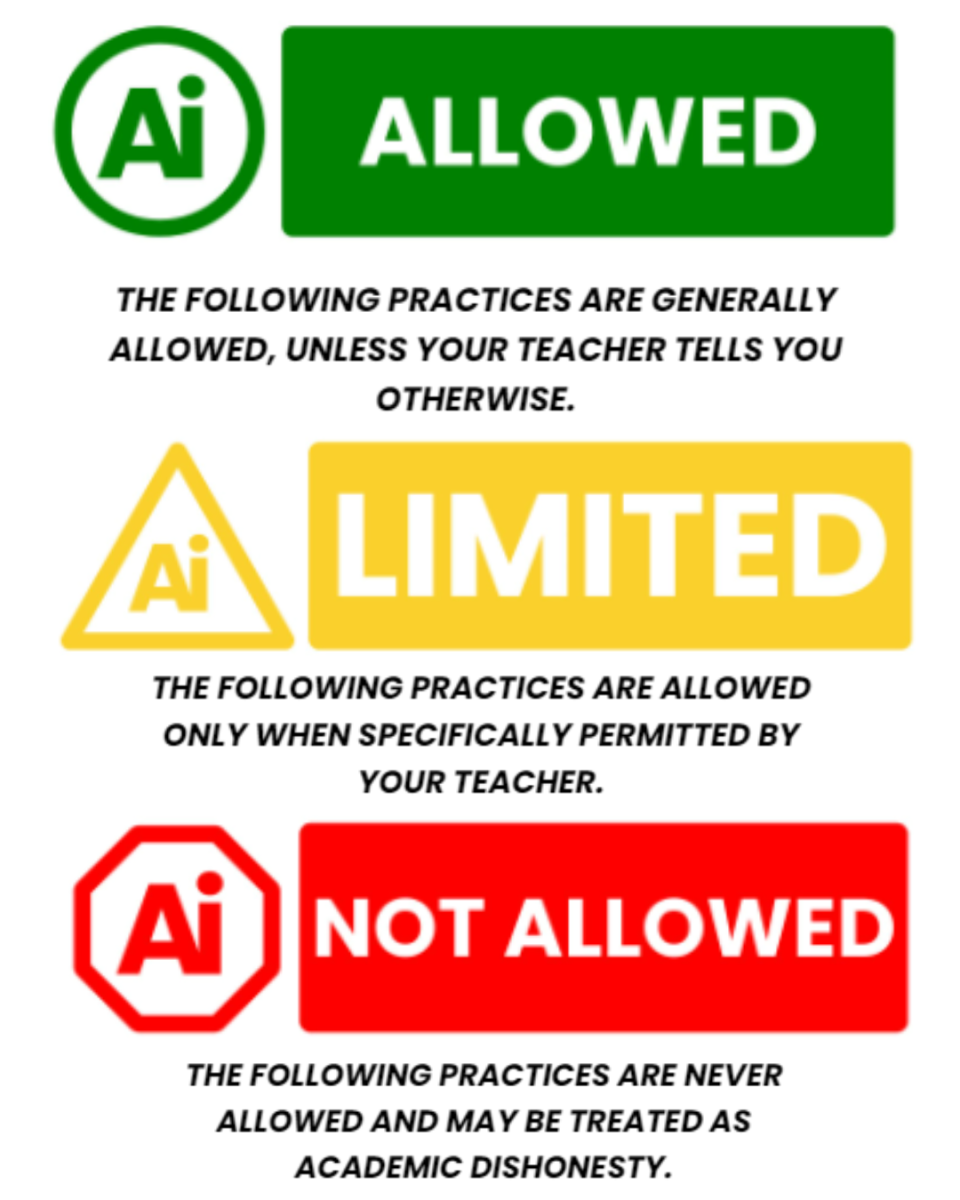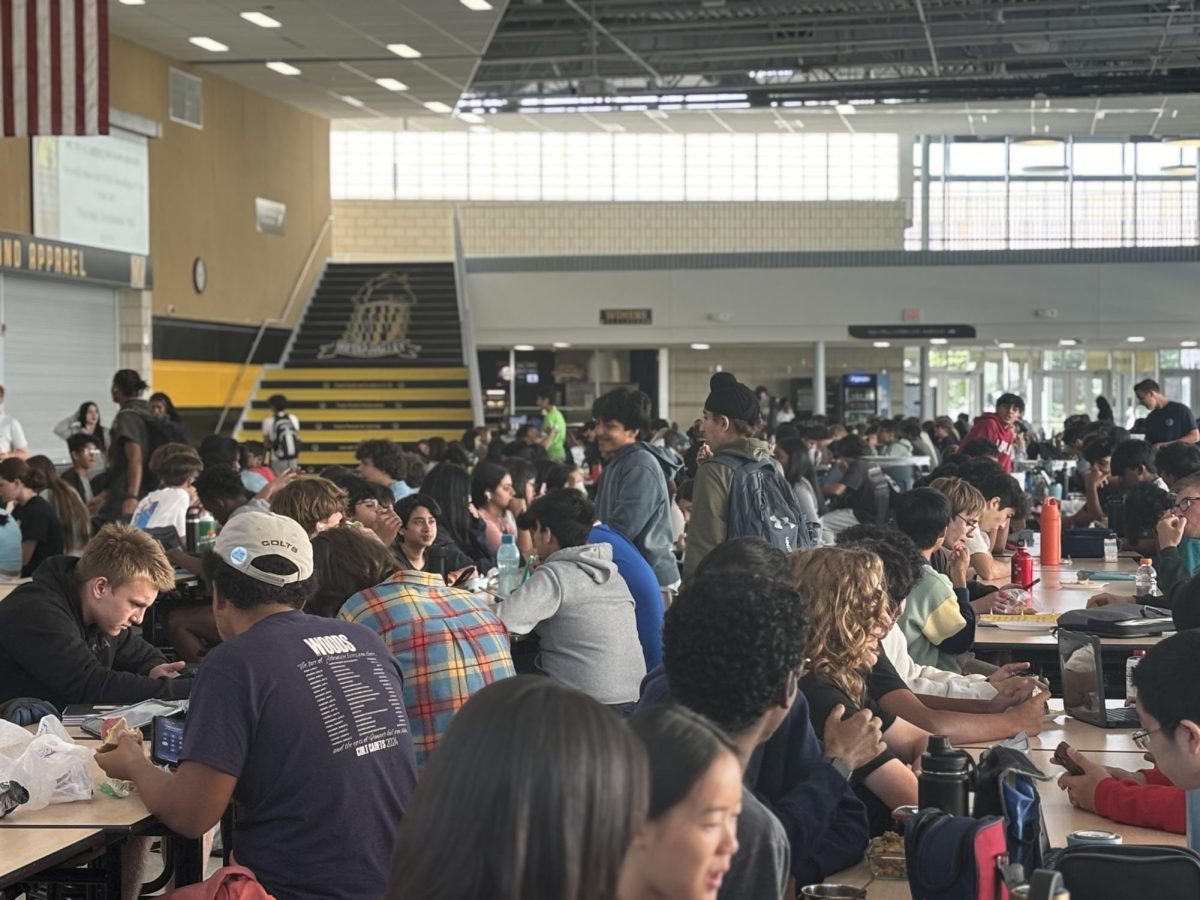Students cope with new school policies and changes
District 204 has introduced various new policies for the 2024-2025 school year that have sparked student conversations. The list consists of policies such as “bell to bell no cell”, the new freshman lunch schedule, the introduction of AI, color-coded hallway passes, and only three students being allowed to use the bathroom at a time.
These brand-new policies have impacted students and staff. Students have many thoughts and opinions on these new changes around the school.
Metea Valley administration emphasized the need for students to stay engaged in classes through the “bell to bell, no cell” school policy. This new phone policy attempts to eliminate distractions to help teachers set clear classroom expectations during the 2024-2025 school year
Discussions over phone usage in classrooms started during the 2023-2024 school year. Teachers felt that students were distracted in classes due to phones.
“When I met with our teachers union representatives, [we] really focused on what [support] is needed next year,” Principal Dan DeBruycker said. “Teachers said they had a hard time instructing with cell phones and that they needed a different level of support.”
During the 2023-2024 school year, the phrase “back in the pack” was introduced and teachers were offered cell phone holders. However, since this change happened in the middle of the school year, it was not very effective.
Metea’s administration was quick to introduce the “bell to bell, no cell” policy during the start of the 2024-2025 school year.
“[We] communicated with parents, students, and everyone, so they know when we hit day one what the expectation is,” DeBruycker said.
This policy sets what the basic expectation has always been: students must be respectful and engaged in the classroom. However, the use of cell phones in class is not entirely prohibited. Students may use their phones in class if teachers are comfortable with them doing so.
Although teachers are free to allow phones in the classroom, most do not. The teachers aim to present a united front. Social studies teacher, Aaron Marshall, explained the way he sees the policy from a teacher’s perspective.
“It is very important that all the teachers are on the same page. If one classroom just is willy nilly and lets phones be out the entire time, it’s kind of like a crack in the dam,” Marshall said. “And then water starts slowly leaking out, the crack spreads”
Sophomore Sameera Waghmare expected that a phone policy would be implemented.
“I know that last year was kind of bad. Especially towards the end of the year. I saw a lot of people on their phones,” Waghmare said.
Still, students find the policy to be “overbearing”. Waghmare believes that students should be allowed to use their phones in class to some extent. Listening to music in class, for example.
Although the policy has mixed reviews from students, Principal Debruycker explains the goal and intent behind enforcing it. He believes that the phone policy is a step in the right direction. The administration hopes that the policy will lead to more engagement in classrooms, higher GPAs, and fewer behavioral issues.
“It’s healthy to disconnect and be able to connect with other human beings, as we are learning. And that’s the purpose of the school system, is to continue to help us learn and grow together,” Debruycker said.
So far, staff have reported that the policy has caused a positive change and discussed the impact of students not using their phones during class time.
“I think [students] are more focused. I think engagement is different I don’t want to confuse focused and engaged,” Marshall said. “As teachers, we’re always looking for how we can better hook students into what we’re doing and engage them in a fun way, but I think they are more focused since phones [aren’t] in front of them.”
Metea made a new AI policy. As technology quickly advances, teachers and school administrators have allowed students to access ChatGPT on their Chromebooks.
Teachers give a lesson on how to use ChatGPT and its introduction to the district during an extended second period. Teachers explain how ChatGPT should be used in classrooms and on assigned work by introducing the three-color system; green indicates ways Generative AI can be used, yellow means to ask a teacher to make sure it’s okay, and red are ways generative AI cannot be used.
“With technology just moving, evolving, and changing we want to make sure that our students are up to date and that they’re prepared for life outside of Metea,” Metea’s instructional technology coordinator Jessica Bantz said.
Originally, District 204 was going to use a different AI program in classrooms. They got rid of it and decided to use ChatGPT instead, which is more enhanced than any other AI program that is being allowed in Metea and other schools in District 204.
“I think if the students are using it in a useful manner, in the ways it is allowed, it will definitely help with creativity, and with ensuring the quality of their work,” English Language Learner teacher Bella Gallegos-Martinez said.
This poll has ended.
Do you fully understand how to use AI appropriately?
Sorry, there was an error loading this poll.
For more information about the AI policy, please visit https://www.ipsd.org/Page/2837.
Metea Valley freshmen have mixed feelings over an unexpected change to their lunch schedule. Metea’s administration has modified the freshmen schedule for the 2024-2025 school year. All freshmen now report to a What I need, or WIN session for half their lunch. This schedule change caused the establishment of a new bell system to assist with the transition from lunch to WIN.
WIN was implemented to make the jump from middle school to high school easier for freshmen. This system was an idea floating around for years, but they finally organized the rooms and staff to make WIN happen. The new lunch configuration gives freshmen a period to do anything that they need to do. However, Principal Dan Debruycker points out the multitude of ways freshmen could take advantage of WIN time.
“We’re looking to figure out how we utilize it the best as time goes on, but really targeting those freshmen to get off to a good start is really important to us,” Debruycker said. “As time goes on, they’re going to need to utilize that time to do homework. They’re going to maybe utilize that time to do reassessments, maybe tap into the resource rooms downstairs.”
However, this new schedule does not benefit everyone. The bell used to transition freshmen to WIN periods is the same as the end/start bell. Many students find that the bell distracts them from their classes and draws their attention to what their next class is. Junior Annie Jones says that bells in the middle of the period only adds to the stress of leaving for your next class.
“Sometimes, I struggle and I scramble to get my stuff away,” Jones said. “And sometimes I throw things in the wrong place.”
The staff has mixed feelings. Teachers say that they find the bell helps them with their lessons as a reminder that only half the period remains. Other teachers say that the bell is just as distracting for them as it is for the students as some staff need to cross the building quickly to their next class. Science teacher Lisa Braheny expresses what it’s like to get to her class.
“My classroom is on the other side, at the bottom,” Braheny said. “So when the bell rings, I have a class right after this, so I’m like hurrying.”
According to Debruycker, there is no current way to adjust the bells, and it is still a work in progress. Metea administration is working with a bell company to learn about a new system with the hope of adding more sounds to differentiate the bells.
However, freshmen themselves feel that this period will benefit them in the long run for the rest of their high school career.
“The WIN gives me time to, like, do my assignments and catch up on anything I need to catch up on,” freshman Claire Tracy said.













Justin • Sep 11, 2024 at 8:35 pm
The bell needs a different sound
Ace • Sep 11, 2024 at 11:13 am
Great work with all of this, you guys!